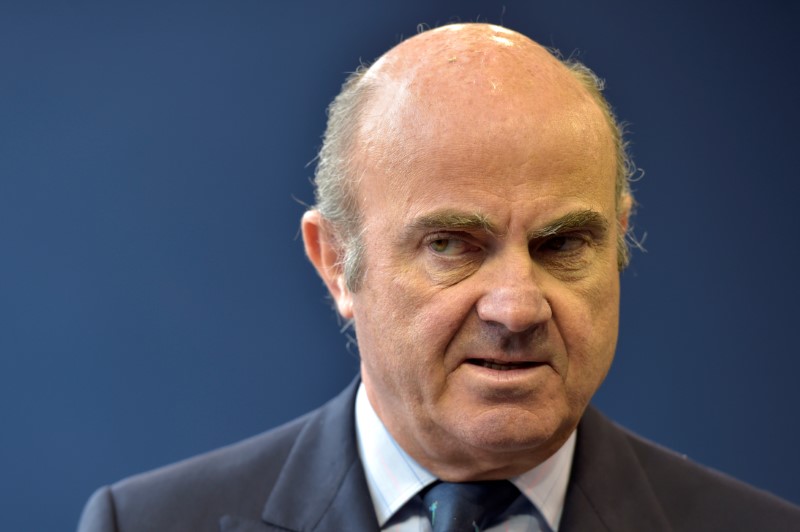By Geoffrey Smith
Investing.com -- The euro rose in early trading in Europe on Thursday as Vice President Luis De Guindos joined a growing chorus of European Central Bank officials acknowledging the possibility of an interest rate hike as early as July.
De Guindos' comments follow similar ones from Deutsche Bundesbank head Joachim Nagel, and his Belgian and Latvian counterparts Pierre Wunsch and Martins Kazaks within the last 24 hours. All four are attending the International Monetary Fund's spring meeting.
They represent a coordinated change in messaging from the bank after President Christine Lagarde had played down the chances of an early rate hike at her press conference only last week. While it's common for the German central bank to take a more hawkish line than the bank's official one, the comments have a greater weight coming from Lagarde's deputy.
By 2:50 AM ET (0650 GMT), the euro was up 0.4% at $1.0894, its highest in a week. It had hit a 20-month low of $1.0757 after Lagarde's press conference on Thursday.
Newswires quoted De Guindos as saying that there was "no reason" why the bank can't end its net asset purchases in July, which would pave the way for an interest rate hike almost immediately after. However, he stressed that any raising of rates would be "data-dependent," given that the risks to the economic outlook have increased considerably with Russia's invasion of Ukraine. Earlier in the week, the IMF had downgraded its growth forecast for the Eurozone this year to 2.8% from an earlier estimate of 3.9%. Inflation, meanwhile, is running at an all-time high for the single currency at 7.5%, although De Guindos said he expects it to moderate by the year-end.
Overnight, Belgian National Bank Governor Wunsch had told Bloomberg in an interview that a sequence of rate hikes this year was likely.
"Without any really bad news coming from that front, hiking by the end of this year to zero or slightly positive territory for me would be a no brainer,” Wunsch said.
On Wednesday, meanwhile, Bundesbank head Nagel had said “It seems we’ll be able to end net purchases, possibly already at the end of the second quarter,” paving the way for a first rate increase “at the beginning of the third quarter."
